Every Marketer Should Be Technical
.jpg)
There's been a lot of talk of roles like growth hackers, marketing ninjas, and technical marketing in the past year. Regardless of whether or not you subscribe to these labels, technical skills are becoming a requirement for success in online marketing. The marketers who know SQL, can write code, leverage APIs, and perform quantitative analysis will be the most desirable and productive individuals in our industry. Those without these skills will find it increasingly difficult to find ideal career opportunities.
I've prepared this guide as an overview to the technical skills that are most helpful in online marketing and included a directory of resources to help you get there.
Growth hacker, growth cracker; the labels don't matter, but the skills do!
There's been plenty of discussion in the past year on the importance of growth hacking, who is and isn't a growth hacker, and if growth hacking is really just marketing. Although I appreciate this conversation, I think we're overlooking what's most important.
Instead of focusing on what those who do technical marketing call themselves, I'd rather we explore what it means to be technical and help each other develop those skills. Refer to these marketers however you like; what really matters is what we're capable of as professionals.
Can a marketer be technical? Of course. (And developers can be phenomenal marketers, too.)
I started my own career as a developer and slowly became more focused on marketing as the years progressed. I worked as a developer when Netscape Navigator was popular and Yahoo was #1 in search. However, I was a pretty lousy developer, slapping things together with table tags and transparent gifs. I was fortunate enough to keep my job because that's how most of us did web development back then.
I'm actually more technical now as a full-time marketer than I ever was back then because I've been fortunate to continually be exposed to, work with, and do work that requires technical skills. And that's really only because it was a matter of necessity in the organizations I've worked in. So, if an unfocused individual like me can do this, anyone can.
Better examples can be found in the phenomenal marketing and technical skills of individuals like Richard Baxter, Vanessa Fox, Wil Reynolds, Alex Schultz, Tom Critchlow, or Michelle Robbins. All of these individuals have different stories of how they developed their capabilities, but I'd bet they all share a passion for staying up late, tinkering, and hacking away at their work, with a strong desire to always be developing new skills. (As a side note, I feel so fortunate to work an industry with so many individuals like this, and it's been an absolute pleasure to learn from them.)
Developers can be remarkable marketers, too, and some of the best marketers I've known work as developers first and foremost. The one difference is that a lack of marketing skills is not likely to prevent an engineer from being successful at their work. Marketers, on the other hand, are going to have a much more difficult time doing their work without some semblance of technical skills, which brings me to my next thought:
Generalist/specialists are the new minimum viable professional
For generations, professionals have been pressured to be either a generalist or specialist. The generalists were the managers who oversaw operations, and had a holistic view of how marketing was accomplished, but were less capable of doing the work themselves. Generalists relied upon specialists who knew how to write, design, code, or analyze. And for generations of marketing, this worked just fine.
But, this trend just doesn't cut it anymore. To be successful nowadays, you need have both a breadth and depth of skills. You have to know what to ask for and how it's done. Without both of these capabilities, you're prone to be less efficient than a colleague or competitor who does.
This is especially pronounced in the startup world, where budgets are constrained and companies can't afford to hire both managers and specialists. And this trend explains why the growth hacker meme is so popular in startup communities. You have to be able to do everything to hack it at a startup.
I like refer to these individuals as generalist specialists. These are individuals who have both knowledge of marketing channels, methods, and techniques, but also have the specialist technical knowledge to understand what's possible and what's not, and to do the work themselves.
.jpg)
Know what to ask for, or just do the work yourself
Perhaps my favorite reason to develop these skills is the ability to communicate better with everyone in your organization. If you know what's possible, then you'll know what to ask for when you work with developers, designers, and analysts. And in many cases, you'll be able to just do the work yourself.
What is a technical marketer capable of?
Stated simply, a great technical marketer can devise, develop, launch, and analyze their marketing campaigns with little or no assistance. The example I've prepared below is fictitious, but by no means a panacea. I happen to be using a fictitious marketer at Incase, a company I randomly chose, but whose products I really like.
So, let's take a look at the process and capabilities a technical marketer would use to manage their efforts.
1. Find something to improve
A technical marketer can review their efforts and find and prioritize opportunities for improvement. In this case, our marketer has decided to try to increase repeat purchases.
.jpg)
2. Devise a strategy
From there, they need to determine how they are going to accomplish that.
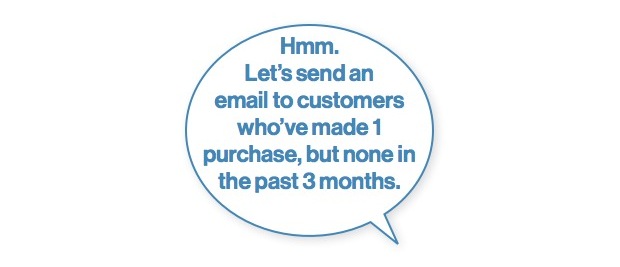
3. Forecast the improvement
The next step is to estimate the efficacy of the campaign to see if it's worth their time and effort. It looks like it is!
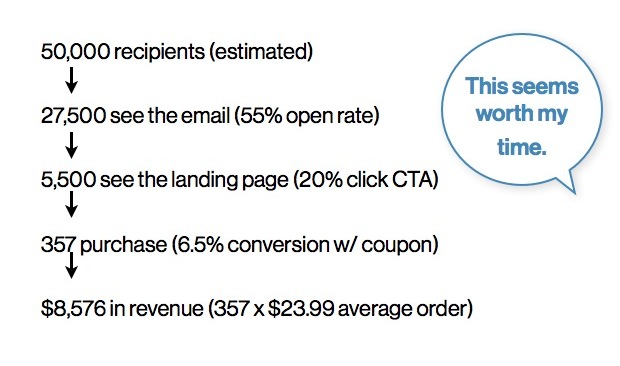
4. Pull customer list from database
The marketer would then use SQL to query their database for the appropriate users to generate an email list.
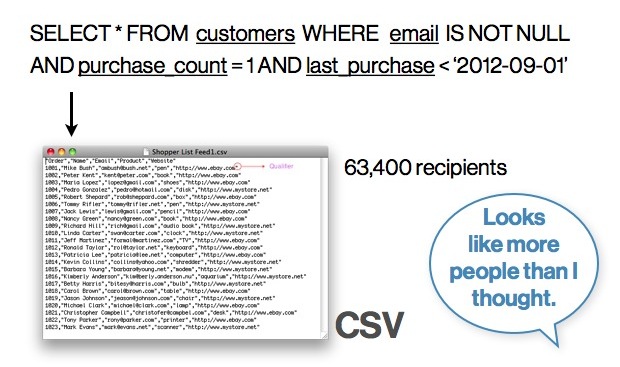
5. Wireframe the email, and write the copy
From there, they would create a simple wireframe and draft the email copy.

6. Design and code the HTML for the email template
Next up is creating the HTML template, first using an image editor like Photoshop, and then developing the HTML and CSS.

7. Instrument end-to-end tracking
The marketer will then ensure that there is end-to-end tracking in place, and likely place a few test orders to confirm it's all working properly.
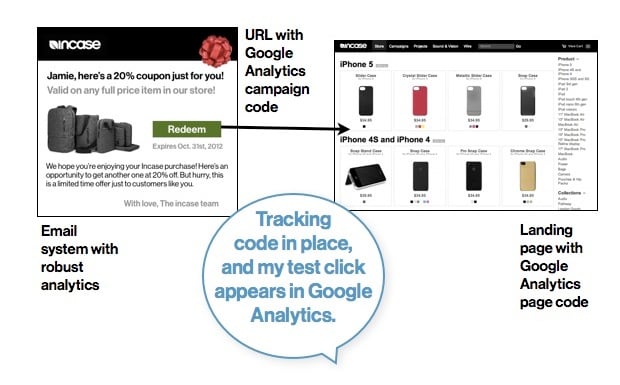
8. Launch the campaign
It's time to send the campaign and wait for the results. Meanwhile, our fictitious marketer enjoys a bland, but reasonably-priced American beer.
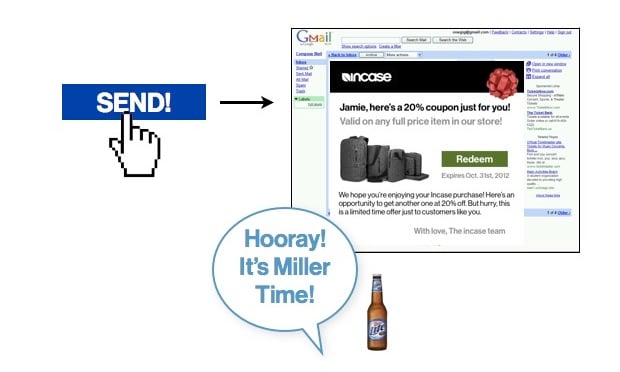
9. Evaluate the results
A few days later, the marketer collects analytics from the various systems, combines them in Excel, and calculates the quantitative impact of the campaign.
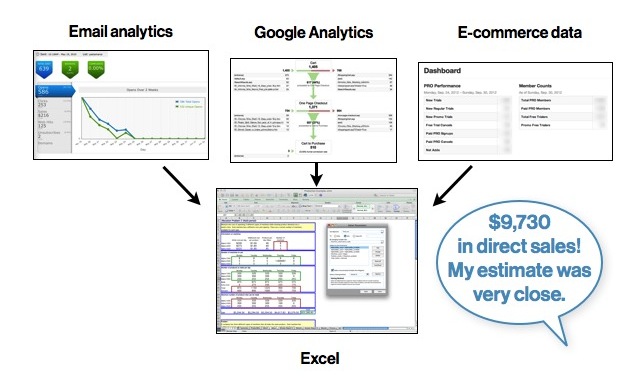
10. Automate for ongoing success
The marketer determines the campaign was successful enough to do it each month and develops a script will automate the process.
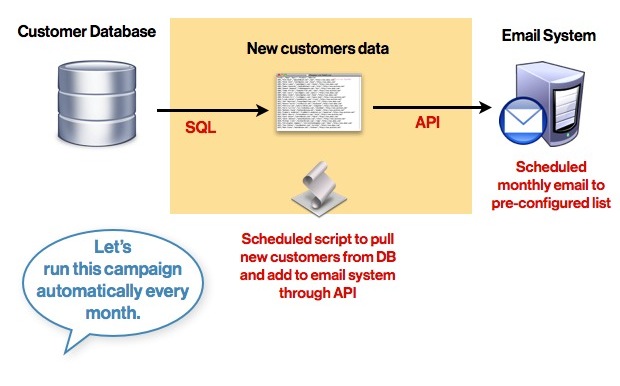
11. Correlate those that receive email with purchases
Ever the ambitious individual, the marketer then performs some statistical analysis to determine if those who receive email campaigns have a higher propensity to make purchases on the site.
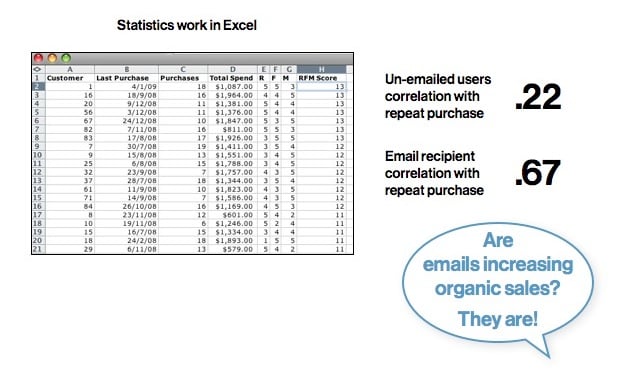
12. Rinse and repeat
After a successful campaign, the marketer begins all over again, armed with additional experience on what sort of campaigns are successful, and is better prepared to be successful in the future.

What does it take to get there? Here's a recipe to develop your technical skills.
The capabilities demonstrated above show a fictional marketer who is able to run a successful campaign with little or no assistance from others. So, how do you get there? Primarily, by jumping in, trying it out, and learning as you go.
To help you on your way, I've put together a recipe of skills with links to resources. Some resources are better than others, and you can pursue them in any order you'd like. Have better resources than what I've included? Please feel free to contribute them in the comments.
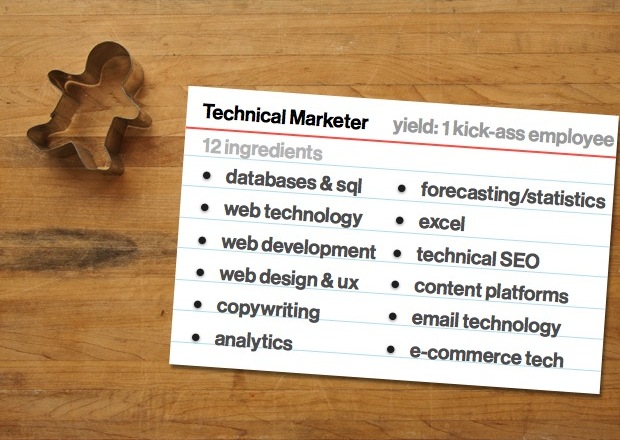
Databases and SQL
Pull your own data. Understand how databases work and create your own.
-
Structured-query-language (SQL)
- http://sqlzoo.net/
- http://sql.learncodethehardway.org/
- http://www.w3schools.com/sql/default.asp (good tutorial, but be wary of other content on w3schools).
- Data types
- MySQL database server
Web development
Build web pages and emails. Use JavaScript to add functionality. Utilize server side scripting.
- HTML/CSS
- JavaScript
-
Scripting/Programming
- Programming overview: http://www.khanacademy.org/cs/tutorials/programming-basics
- Online development environment: http://c9.io
-
PHP: http://devzone.zend.com/6/php-101-php-for-the-absolute-beginner/
- PHP is good, but if you're starting from scratch, I'd recommend Python, Ruby, or Node.js.
- Python (and Django): http://www.learnpython.org/
- Ruby on Rails: http://railsforzombies.org/
- Node.js (and Express.js): http://www.codeschool.com/courses/real-time-web-with-nodejs
Web technology
Understand how HTTP and web servers work. Harness the power of the query string.
- HTTP
- Web Servers/Apache
- .htaccess
- Query String
Web design and UX
Pick up some design skills. Give better wireframes to your designers, or design it yourself.
- Wireframing
- Web design
- Image formats
- Photoshop
Copywriting
Learn to write for the web, email, and social marketing channels. Be creative AND pithy.
- Writing for the web
- Writing for email
Analytics
Know how you’re doing. Evaluate performance and determine how to make it better.
- Metrics/methodologies
- Google Analytics
- KPIs of Web Analytics
- Google Analytics Web Query Explorer
Forecasting and Statistics
Predict the future. Create a forecast or budget. Run correlations and regression analyses.
- Forecasting and budgeting
-
Statistics for marketing
- http://www.investopedia.com/articles/financial-theory/09/regression-analysis-basics-business.asp#axzz28GLwas9H
- http://www.amazon.com/Head-First-Statistics-Dawn-Griffiths/dp/0596527586/
- (There aren't many great resources for marketing statistics online -- I'd appreciate any links you have.)
-
Market research technology
- Google Consumer Surveys:http://www.google.com/insights/consumersurveys/home
- Data publishers: Quantcast, Hitwise, Compete (questionable accuracy in my experience)
Excel
Become an Excel ninja. Use PivotTables to find qualitative answers. Use VLOOKUPs to join data.
- Excel
- PivotTables
- VLOOKUPs
Technical SEO
Become an SEO-friendly web developer. Use your knowledge of HTTP to fix on-site issues.
- On-site SEO
- Redirects, rel-canonicals
-
HTTP status codes
- https://moz.rankious.com/_moz/learn-seo/http-status-codes
- http://www.flickr.com/photos/girliemac/sets/72157628409467125 (slightly in jest, but the descriptions on each photo are quite good)
Content platforms and Hosting
Know how to publish your wonderful words and code. Use the right tool for the job.
- Web hosting
- WordPress
- Drupal
- Joomla
Email technology
Learn how to send email effectively. Utilize the power of a robust email platform.
- SMTP Protocol
- Deliverability
- Email platforms
E-commerce tech
Learn to accept money graciously. Discover how SSL works, PCI compliance, and industry vendors.
- SSL
- PCI compliance
-
Payment technology and vendors
- The full stack: Recurly, Stripe, Braintree.
- More on Stripe: http://net.tutsplus.com/tutorials/other/so-you-want-to-accept-credit-cards-online/
- The banks: Chase PaymentTech, FirstData
- The middlemen: Authorize.net, PayPal, Intuit Payments
Many paths, one result: an unstoppable force of capability, limited only by your own creativity.
Developing technical skills isn't about being becoming indispensable; it's about developing capabilities to be self-reliant when necessary and providing signficiant value to your organization. These skills help you not only in doing your own work, but in working with your team and other individuals. In other words, these skills will remain valuable for your entire career.
I'd love to know what you think in the comments. What resources do you like? What have you used to bolster your technical skills?
(Some images provided by Shutterstock.)
The author's views are entirely their own (excluding the unlikely event of hypnosis) and may not always reflect the views of Moz.




Comments
Please keep your comments TAGFEE by following the community etiquette
Comments are closed. Got a burning question? Head to our Q&A section to start a new conversation.